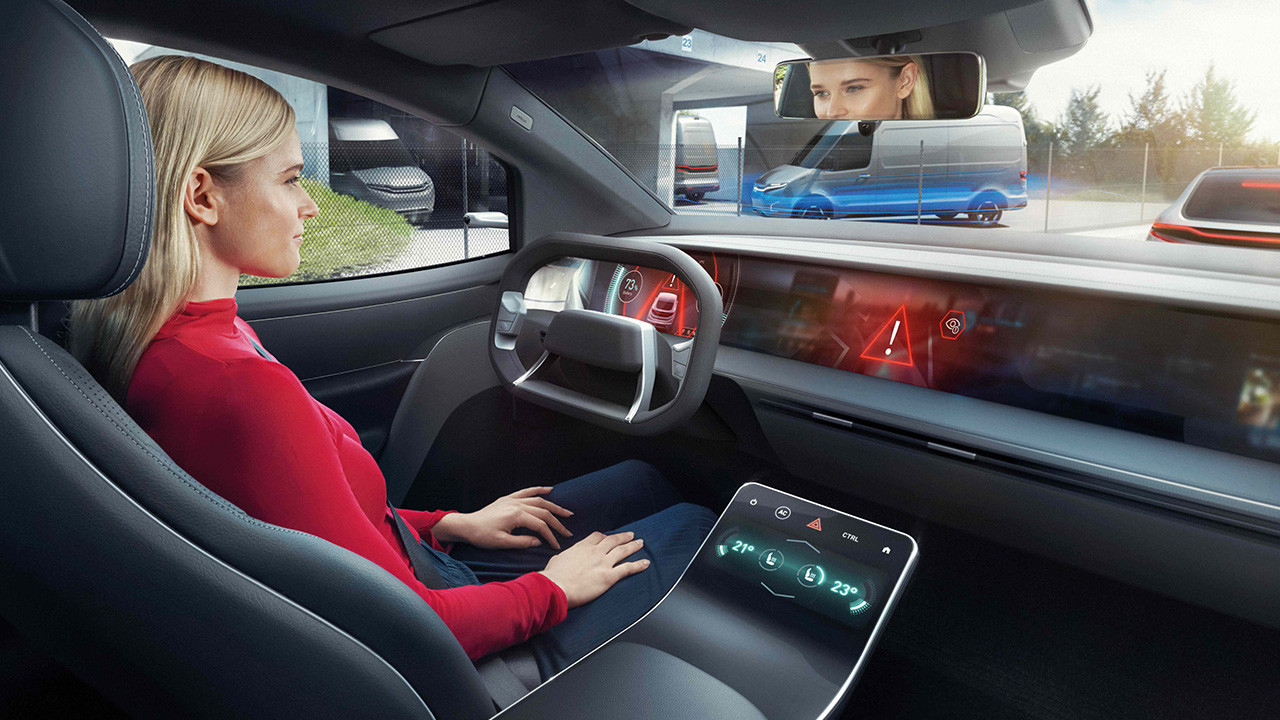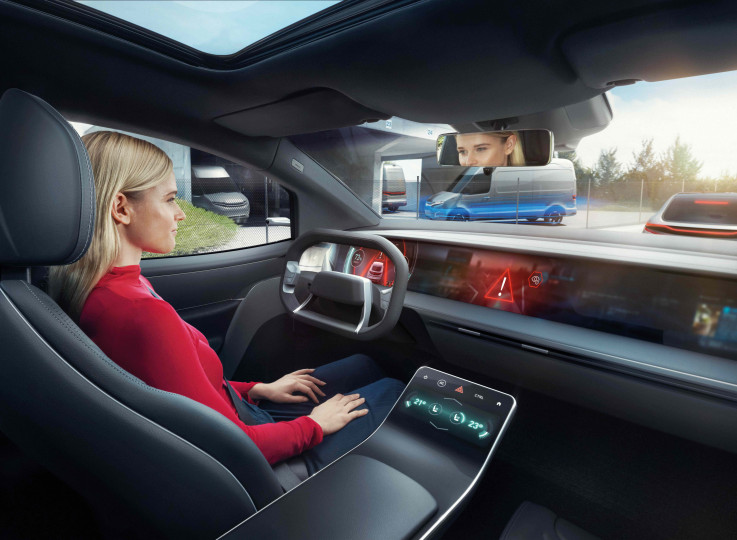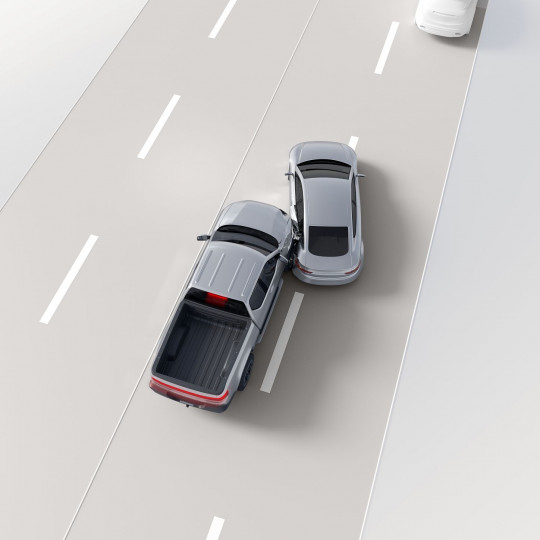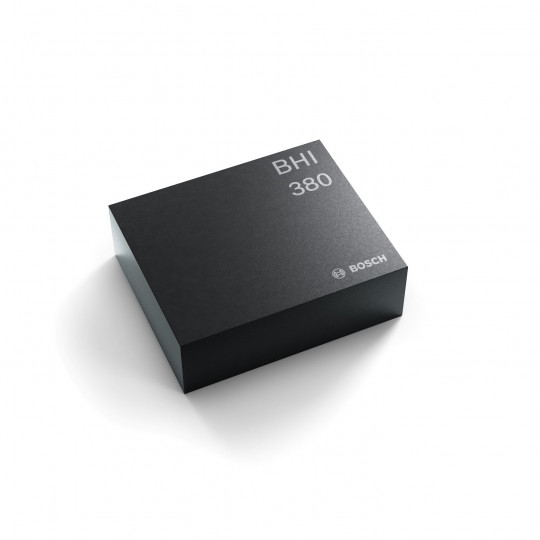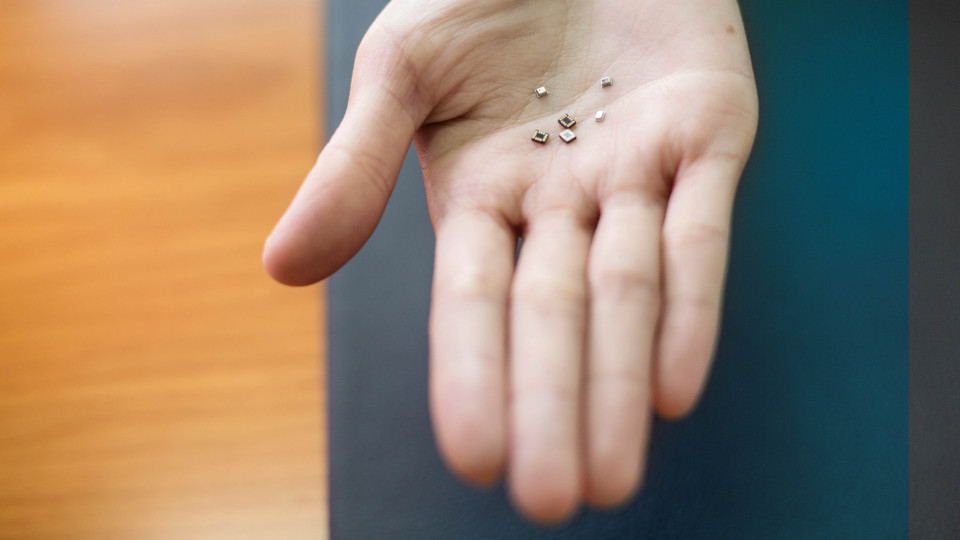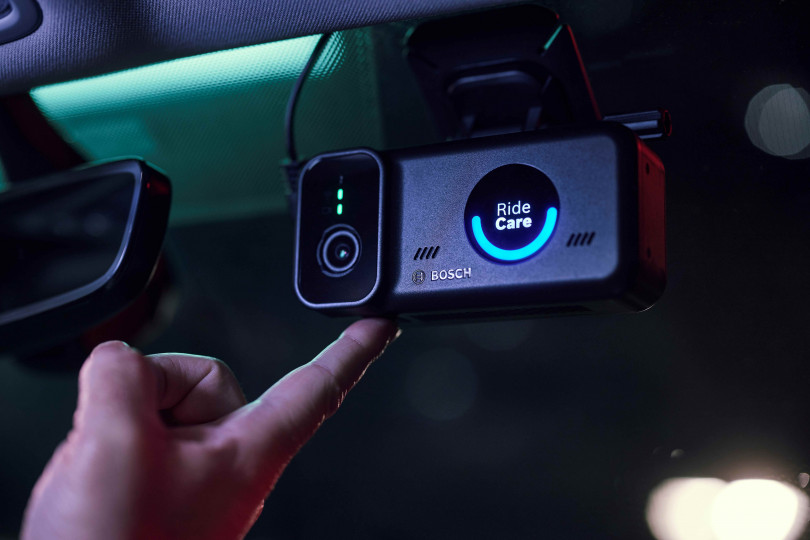Las Vegas, NV – Sensors are ubiquitous. They allow cars, e-bikes, smartphones, fitness trackers, and headphones to sense their environment. Bosch develops and manufactures smart sensors that make life safer and more convenient. And these sensors are becoming ever more efficient, which helps protect our planet. Bosch is a pioneer and market leader in microelectromechanical (MEMS) sensors – one of the most important and widely used sensor types today. “We started production of MEMS sensors in 1995. In the past five years, we have produced as many of these sensors as in all the years before that,” said Tanja Rückert, member of the board of management at Robert Bosch GmbH, at CES 2023 in Las Vegas. Since it began manufacturing them 27 years ago, the technology company has produced a total of more than 18 billion MEMS sensors; today, there are an average of 22 of them in every car. Bosch is currently the top MEMS sensor manufacturer, according to Yole Group*, a market research and strategy consulting company. By 2027, global annual demand for such sensors is expected to grow from 33.5 billion now to around 49 billion units. Bosch also wants to share in this growth and expects a further significant increase in production figures in the years ahead. Rückert emphasized that the company wishes to remain the market leader and expand its leading position even further. To meet growing demand, Bosch is investing heavily in its wafer fabs in Dresden and Reutlingen. Overall, the company plans to invest three billion euros in its semiconductor business, and thus also in sensor development and manufacturing, by 2026 as part of its investment plan. In its work on microelectronics and communications technology, it will draw on the European IPCEI ME (“Important Project of Common European Interest on Microelectronics”) funding program.
Sensors save lives and pave the way for connectivity
Sensors are at the heart of modern technology and the backbone of the connected world. They make vehicles safer, save lives every day, and help protect both the environment and human health. This makes them a crucial technological basis for all Bosch business areas – and they are also the focus of the sequel to the digital image campaign, under the tagline “Sensor tech #LikeABosch.” “With the help of sensors, we can take technology that is ‘Invented for life’ to a new level. They not only improve people’s quality of life but also reduce the environmental footprint of our smart everyday companions. Our new #LikeABosch campaign gives some striking examples of what this means,” Rückert said.
MEMS sensors first went into widespread use in the automotive industry. Bosch has remained one of the leading sensor manufacturers for this industry. Bosch sensors help with vehicle navigation, they control airbags and ESP systems, and they enable a wide range of assistance functions that enhance driving safety, comfort, convenience, and efficiency. For automated driving in particular, sensors are indispensable. They are, so to speak, the “eyes” with which cars can “see” and understand their surroundings. Bosch sensors are paving the way for the driverless car. The company already offers a range of radar, lidar, video, and ultrasonic sensors for automated driving. But MEMS sensors also play a central role in consumer electronics. For instance, pressure sensors in smartphones can pinpoint a device’s altitude to within a few centimeters. In an emergency, for example, this means first responders know very quickly which floor a person in distress is on. The U.S. Federal Communications Commission (FCC) estimates that such pressure sensors save 10,000 lives a year in the U.S. alone.
New Bosch innovations improve safety on the roads
At CES 2023, Bosch will present several new sensor-based innovations for mobility – including the RideCare companion solution, which won a Best of Innovation Award from the industry association CTA. The RideCare companion will play a critical part in the enhancement of safety for all vehicle occupants in connected and automated mobility, the company says. The connected hardware and software solution consists of a camera, a wireless SOS button, and cloud-based data services. Vehicle drivers can use it to contact Bosch associates around the clock should an accident or other dangerous situation occur. In the event of an incident, the Bosch associate can look into the vehicle via camera, assess the situation, and, if necessary, quickly request assistance. The RideCare companion serves as a valuable safety net, especially for cab or ridesharing drivers.
Off-zone crash detection also promises greater safety on the road: the system protects vehicle occupants in the event of side collisions, which often occur when changing lanes or crossing intersections. Smart sensors combined with a new software algorithm quickly and reliably detect the exact angle of impact in the event of a side collision and trigger the life-saving airbag in time to mitigate the consequences of an accident. “Our off-zone crash detection is a great example of how we use software to get more out of existing hardware. This creates an appreciable additional benefit in road transport,” said Mike Mansuetti, president of Bosch in North America, at CES in Las Vegas.
Sensor-based external microphone gives self-driving cars ears
At CES, Bosch is also premiering its technology for a new sensor-based external microphone. This enables automated vehicles to recognize acoustic signals and voice commands. After all, to fully replace humans at the wheel, self-driving cars must be able not only to “see” but also to “hear.” For example, the external microphone can detect the direction from which the siren of an approaching ambulance is coming and initiate an appropriate driving maneuver. Because the microphone is specifically intended for external use on vehicles, Bosch is developing it so that it can withstand adverse environmental conditions such as rain, snow, and stone chipping.
Quantum sensors offer great potential
Bosch is also living up to its pioneering role in the development of new sensor fields: quantum sensors will be one of the emerging fields of innovation in the years ahead. They could soon enable measurements that are 1,000 times more precise than those of today’s MEMS sensors. This would, for example, permit easier and more accurate diagnosis of neurological diseases. Bosch founded its own startup last year to drive the commercialization of quantum sensors and develop this market. As a broadly diversified technology company, Bosch is advancing the development of promising technologies in many fields and positioning itself for the future: “In the next three years alone, we will be investing ten billion euros in Bosch’s digital transformation. Our current workforce of 40,000 software engineers will also grow," Rückert said.
Sustainability is driving technological progress
Climate action and sustainability are top priorities for Bosch. “For the future of our planet, it’s essential that we all commit to living increasingly energy-efficient lives. At the same time, climate change is driving technological progress at our company – including in sensors,” Rückert said. At CES, Bosch is presenting the next generation of MEMS sensors. They are more accurate, more robust, and more power-efficient than previous models. The programmable and AI-enabled BHI360/BHI380 inertial sensor, for example, which adapts to the wearer’s individual movements when installed in fitness trackers, is half the size and consumes half the power of its predecessor. The same applies to the new BMV080 particulate sensor, which measures the concentration of particulate matter and pollution in the air and, with its space-saving design, is up to 450 times smaller than products currently on the market. And then there’s the BMP585 barometric pressure sensor, which measures a change in altitude of a few centimeters and can thus detect individual pull-ups or push-ups: it requires 85 percent less energy and has increased its robustness by a factor of three compared to the previous generation.
*Source: Status of the MEMS Industry report, Yole Intelligence, 2022
Bosch at CES 2023
• BOOTH: January 5–8, 2023, in the Central Hall, booth #16115
• DRIVING EXPERIENCE live: a fusion of the domains for digital cockpit technologies and advanced driver assistance systems (ADAS): January 5–8, 2023, LVCC, Central Hall, Central Plaza.
• PANEL Industrial Transformation with Robots Powered by AI with Zico Kolter, chief scientist of AI at Bosch, on Thursday, January 5, 2023, 10:00 a.m., Las Vegas Convention Center West / W216-218.
Contact persons for press inquiries:
Bosch at CES: Irina Ananyeva, +49 152 597-53284
Tim Wieland, +1 248 410-0288, Trix Böhne +49 173 523-9774
Connected mobility, software, sensors in mobility:
Athanassios Kaliudis, +49 152 086-51292
Smart living, sensors in consumer electronics:
Dörthe Warnk, +49 172 153-8714
Automated driving: Jennifer Kallweit, +49 152 346-63461
AI, research, Tech Compass: Christiane Wild-Raidt, +49 152 229-78802
Internet of things, sustainability: Inga Ehret, +49 172 324-2636
Twitter: @BoschPress
Hack Mónika; +36 70 510-5516
Mónika Hack
+36 70 510 5516
Bosch has been present in Hungary since 1898 with its products. After its re-establishment as a regional trading company in 1991, Bosch has grown into one of Hungary’s largest foreign industrial employers with currently eight subsidiaries. In fiscal 2021 it had total net sales of 1,711 billion forints and consolidated sales to third parties on the Hungarian market of 273 billion forints. The Bosch Group in Hungary employs more than 17,000 associates (as of December 31, 2021). In addition to its manufacturing, commercial and development business, Bosch has a network of sales and service operations that covers the entire country.
The Bosch Group is a leading global supplier of technology and services. It employs roughly 402,600 associates worldwide (as of December 31, 2021) and generated sales of 78.7 billion euros in 2021. Its operations are divided into four business sectors: Mobility Solutions, Industrial Technology, Consumer Goods, and Energy and Building Technology. As a leading IoT provider, Bosch offers innovative solutions for smart homes, Industry 4.0, and connected mobility. Bosch is pursuing a vision of mobility that is sustainable, safe, and exciting. It uses its expertise in sensor technology, software, and services, as well as its own IoT cloud, to offer its customers connected, cross-domain solutions from a single source. The Bosch Group’s strategic objective is to facilitate connected living with products and solutions that either contain artificial intelligence (AI) or have been developed or manufactured with its help. Bosch improves quality of life worldwide with products and services that are innovative and spark enthusiasm. In short, Bosch creates technology that is “Invented for life.” The Bosch Group comprises Robert Bosch GmbH and its roughly 440 subsidiary and regional companies in some 60 countries. Including sales and service partners, Bosch’s global manufacturing, engineering, and sales network covers nearly every country in the world. With its more than 400 locations worldwide, the Bosch Group has been carbon neutral since the first quarter of 2020. The basis for the company’s future growth is its innovative strength. At 128 locations across the globe, Bosch employs some 76,100 associates in research and development, of which more than 38,000 are software engineers.
The company was set up in Stuttgart in 1886 by Robert Bosch (1861–1942) as “Workshop for Precision Mechanics and Electrical Engineering.” The special ownership structure of Robert Bosch GmbH guarantees the entrepreneurial freedom of the Bosch Group, making it possible for the company to plan over the long term and to undertake significant upfront investments in the safeguarding of its future. Ninety-four percent of the share capital of Robert Bosch GmbH is held by Robert Bosch Stiftung GmbH, a charitable foundation. The remaining shares are held by Robert Bosch GmbH and by a corporation owned by the Bosch family. The majority of voting rights are held by Robert Bosch Industrietreuhand KG, an industrial trust. The entrepreneurial ownership functions are carried out by the trust.
Additional information is available online at www.bosch.hu, iot.boschblog.hu, www.bosch.com, www.iot.bosch.com, www.bosch-press.com, www.twitter.com/BoschPresse

